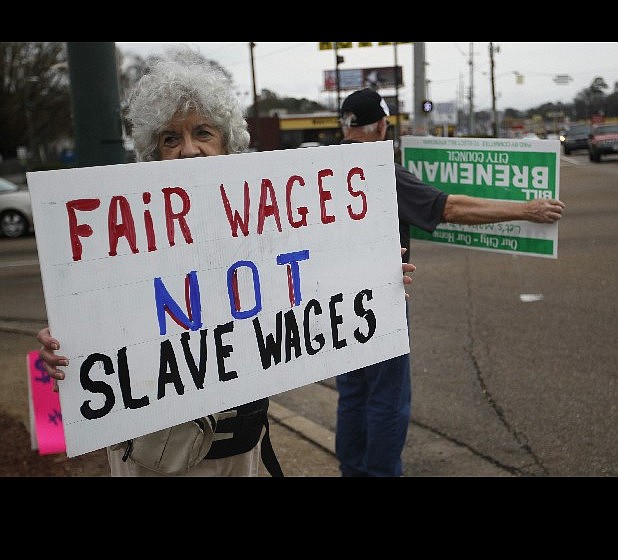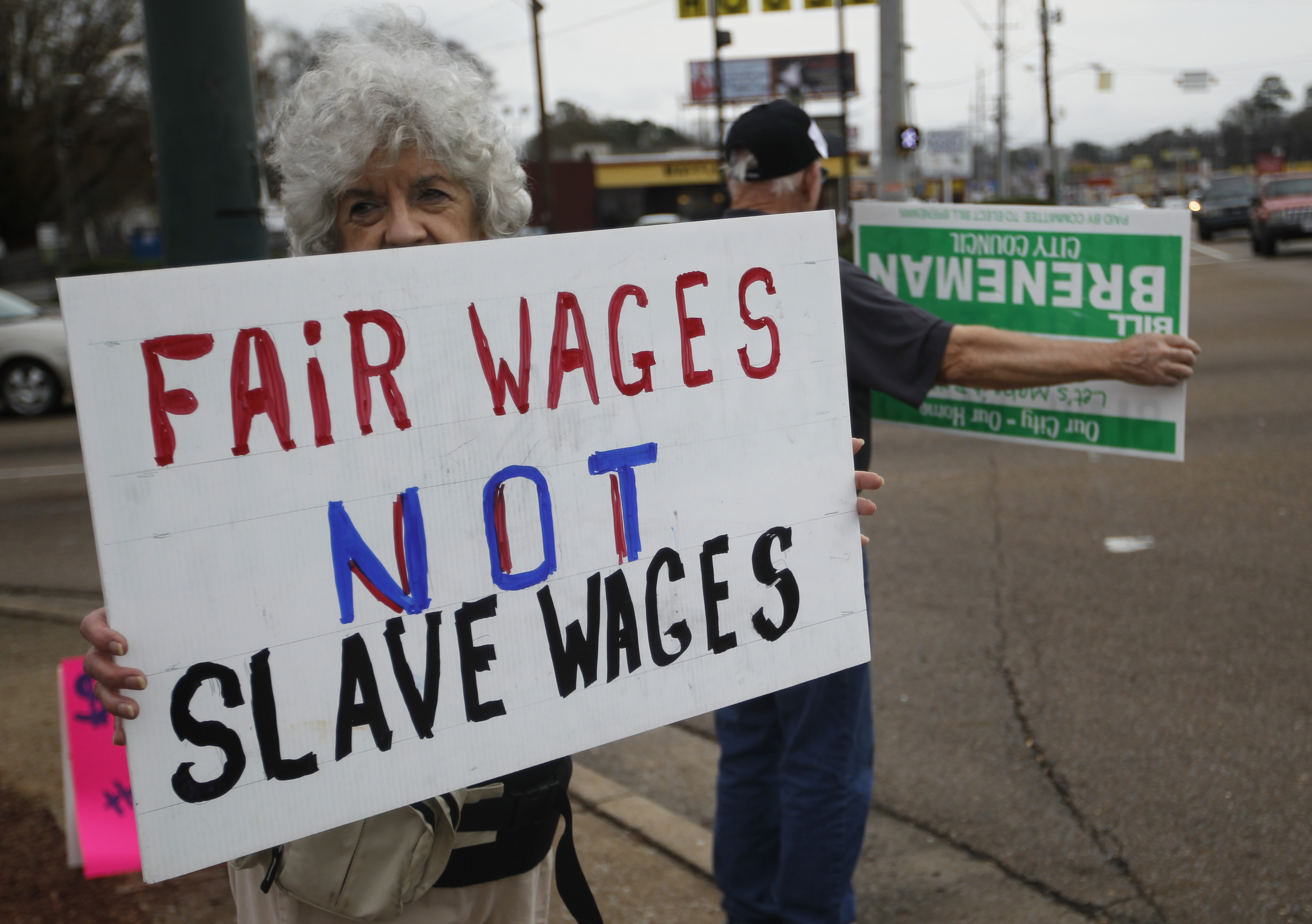ONLINE:Read more about minimum wage debate in Edge magazine: http://media.timesfreepress.com/epaper/Edge/February2014/index.html#page/42Top states for share of workers to be paid minimum wage:1. Tennessee, 7.4 percent, or 117,000 workers2. Idaho, 7.1 percent, or 29,000 workers3. Alabama, 6.8 percent, or 77,000 workers4. Arkansas, 6.8 percent, or 44,000 workers5. Texas, 6.4 percent, or 400,000 workersSource: U.S. Bureau of Labor Statistics
A line of Chattanooga residents looking for work, unemployment benefits, job training or a mixture of all three backed up to the door at the Tennessee Career Center at Eastgate Town Center on Thursday.
Tom Smith chatted with strangers waiting near him.
"There are plenty of jobs," he said. "But they don't pay anything."
In fact, a new U.S. Bureau of Labor Statistics study reveals that Tennessee leads the nation in the share of workers being paid at or below the federal minimum wage of $7.25 an hour.
The BLS estimates that 7.4 percent of Tennessee's workforce -- or 117,000 workers -- was paid minimum wage or less last year. That's well above the national average of about 4.3 percent of the workforce, 3.3 million workers, who earn at or below minimum.
"Tennessee traditionally -- and we're talking about decades -- has been a state that has a high concentration of lower-pay kinds of jobs," said J.Ed. Marston, vice president of marketing and communication at the Chattanooga Area Chamber of Commerce.
Ziad Keilany, professor of economics at the University of Tennessee at Chattanooga, said a number of factors contribute to that, from a lack of labor unions to productivity issues and the fact that jobs here tend to be more labor-intensive than skill-intensive.
"Much of the work in the South, historically speaking, is labor-intensive," Keilany said.
Matt Dotson, an economist with the BLS, said the area which raised Tennessee above the rest of the country in 2013 was food preparation and serving occupations, which include fast food and wait staff employees.
"There's a higher concentration of employment in those than in the rest of the country," he said. About three times the national average concentration, he said, in what are typically minimum and lower-wage jobs.
Tennessee is one of only five states without its own minimum wage law, which means the state defaults to the federal minimum standard.
Four states have minimum wages that are less than the federal standard of $7.25, while 20 have minimums matching the federal requirement. Nearly two dozen states' minimum wages are set higher than the national minimum.
In recent months, President Barack Obama has sought to build momentum for his effort to raise the federal minimum wage to $10.10 an hour by 2016, part of a larger aim to address income inequality.
In Tennessee, a legislative committee earlier this year rejected an attempt to create a state minimum wage. It would match the federal minimum but add $1 per hour for workers who have not been offered health insurance.
"It's hard to raise a family or maintain a lifestyle when you're making less than $300 a week," the bill's sponsor, Rep. Mike Turner, D-Nashville, said before his bill was killed for the year.
Business groups have fought state attempts to impose a minimum wage or to raise the federal minimum wage.
"It's a starter wage for the vast majority of people," said Jim Brown, president of the National Federation of Independent Business Tennessee.
The BLS said last year that nearly one of every five teenage workers was paid the minimum, compared to only 2.7 percent of workers over age 25.
Marston said the annual mean wage in Hamilton County is $39,000, which is more than double the $15,080 a full-time employee can earn making $7.25 an hour.
He said urban areas typically have higher average incomes than rural ones, and that a lot of the state's minimum-wage jobs are in Tennessee's smaller towns and unincorporated areas.
U.S. Bureau of Economic Statistics figures from 2012 show that for the six counties bordering Hamilton, none had a per capita income equal to Hamilton County's $41,200. The closest runner-up was Bradley County, at $33,960.
Regardless, Marston said, he didn't expect to find Tennessee at the top of the list of states with high shares of minimum wage employees.
"It does surprise me a little bit, but it didn't surprise me that we would be toward the top of that list," he said. "I don't think this is anything new."
Stephanie Womack agrees. On Thursday, she waited in the car outside the Eastgate career center, as a relative inquired about work inside.
Womack said the evidence supporting Tennessee's place at the top of minimum wage states is all around Chattanooga, where "everybody starts out at minimum wage." Even older, experienced workers.
Womack is a shift manager at a fast-food restaurant and barely makes more than $7.25 an hour.
Leaving Tennessee has crossed Womack's mind. She has considered moving to Florida to be near her mother and the Sunshine State's wealth of job offerings. Florida also has a $7.79-per-hour state minimum wage.
Womack said she isn't sure she'll ever be able to make enough to be comfortable in Chattanooga.
"We're just looking for something better," she said.
Contact staff writer Alex Green at agreen@timesfreepress.com or 423-757-6480.

